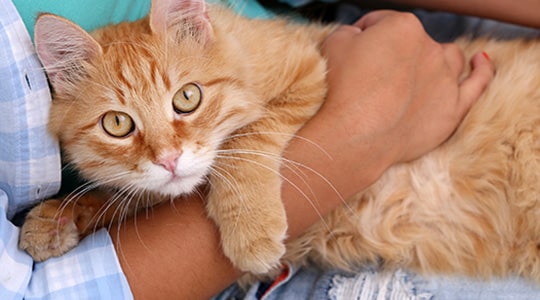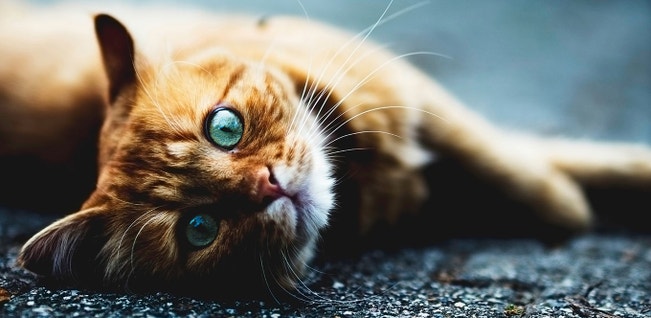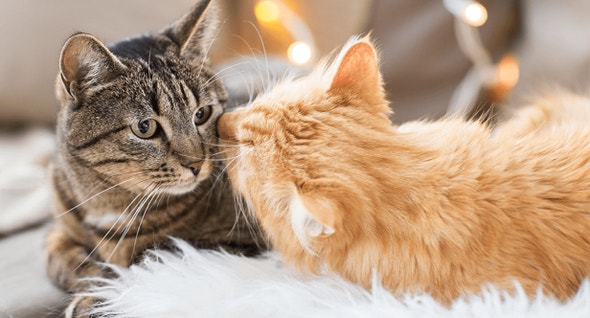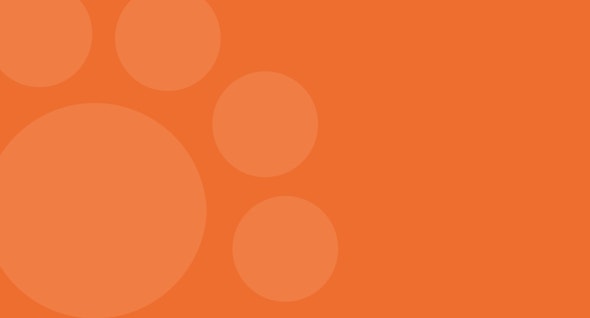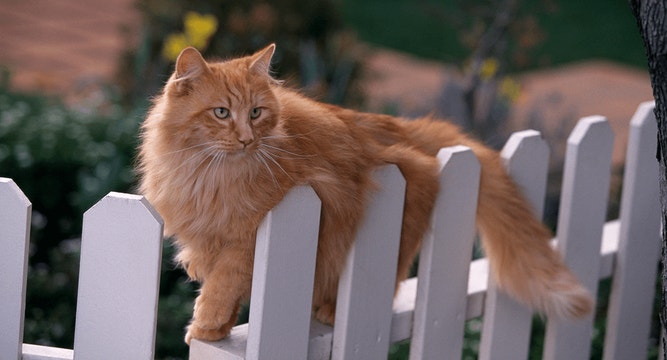
Is Your Cat Overweight, Underweight or Just Right?
This article is part of a series on how to spot signs of a healthy cat. You can learn more about the key signs here.
Assessing your cat’s body condition is an important step in evaluating their overall nutritional well-being. Particularly in cases where your cat appears to be obese or thin, it is important to evaluate their total health before consulting a vet for a proper nutritional management program. Look for the following signs that your cat is overweight, underweight or just the right size.





Thin Cat
- Ribs, lumbar vertebrae and pelvic bones are easily visible
- Thick neck and narrow waist
- Obvious abdominal tuck
- No fat in flank folds; folds are often absent
Underweight Cat
- Backbone and ribs can be easily seen or felt
- Minimal fat covering
- Minimal waist when viewed from above
- Slightly tucked abdomen
Ideal-weight Cat
- Ribs are easily felt, but not visible
- A slight waist can be seen behind the ribs when viewed from above
- Abdomen is tucked up and flank folds are present
Overweight Cat
- Slight increase in fat over ribs, but still easily felt
- Abdomen is slightly rounded and flanks are concave
- Flank folds hang down with moderate amount of fat — you might notice a jiggle when your cat is walking
Obese Cat
- Ribs and backbone aren’t easily felt under a heavy fat covering
- Abdomen is rounded; waist is barely visible or absent
- Prominent flank folds sway from side to side when your cat is walking
What to Feed Your Cat Depending on Their Weight
If Your Cat Is Underweight
Consult your vet; they may recommend a specialized diet higher in protein and fat to help your underweight cat reach an optimal weight, and will also have advice on whether to free feed your cat or feed multiple servings per day to encourage weight gain. (If you opt to feed multiple servings, IAMS™ PERFECT PORTIONS™ are an ideal way to feed your cat throughout the day.)
If Your Cat Is a Healthy Weight
If your cat is currently at an optimal weight, then you likely won’t need to change how much and how often you are feeding them. Make sure you are providing your cat with nutrition tailored to their age and activity level by using our Cat Food Selector and giving your cat plenty of opportunities for exercise.
Tip: Making sure your cat is properly hydrated is essential to their overall health. In addition to providing fresh, clean water at all times, try feeding IAMS™ PERFECT PORTIONS™ Cuts in Gravy wet food to provide additional moisture in their diet.
If Your Cat Is Overweight or Obese
Try feeding IAMS™ Indoor Weight and Hairball Care dry food, formulated with real chicken as the first ingredient and L-carnitine to support a healthy metabolism. IAMS™ research has shown that overweight cats fed with L-carnitine exhibit increased motivation to play — which in turn can help support a healthy weight!

